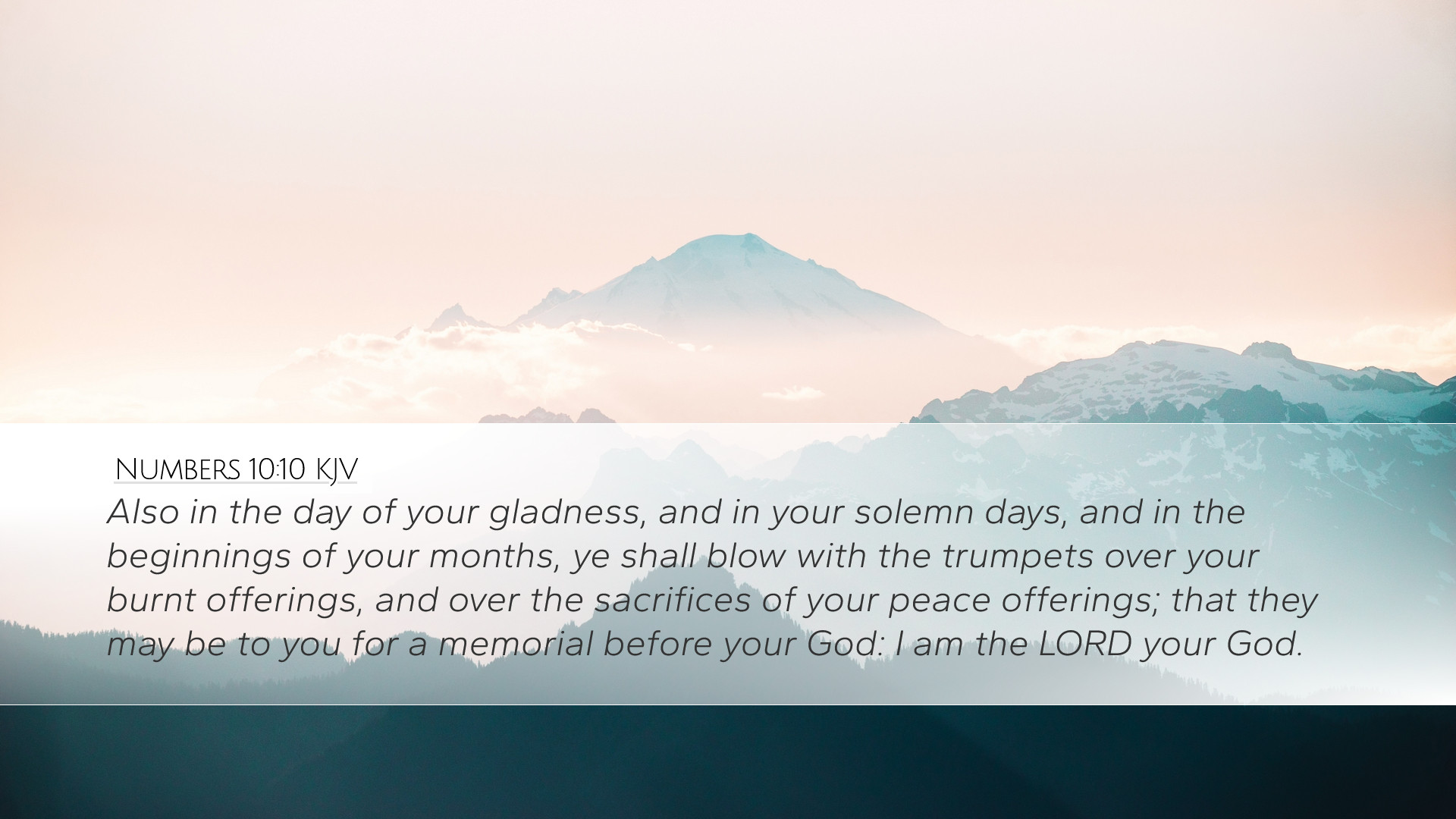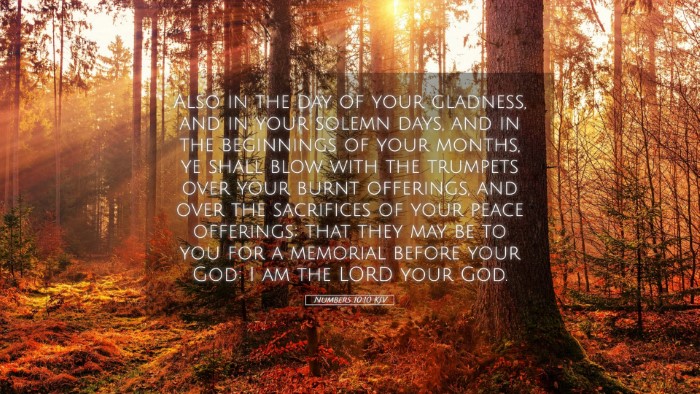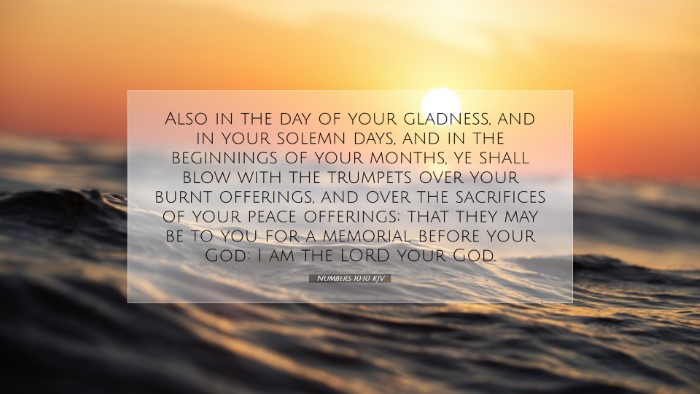Commentary on Numbers 10:10
Verse: "Also in the day of your gladness, and in your solemn days, and in the beginnings of your months, ye shall blow with the trumpets over your burnt offerings, and over the sacrifices of your peace offerings; that they may be to you for a memorial before your God: I am the LORD your God." (Numbers 10:10)
Introduction
This verse functions as an important part of the laws governing the Israelites as they journey through the wilderness. The command to blow trumpets during significant occasions reflects the need for remembrance and joy in the practice of worship. In this commentary, we will explore various insights derived from reputable public domain commentaries by scholars such as Matthew Henry, Albert Barnes, and Adam Clarke.
Contextual Background
In the book of Numbers, God provides instructions related to the order of worship and the Israelites' journey. Chapter 10 specifically details the use of silver trumpets, which were to be blown to signal various actions, including gathering the people, initiating their journey, and during significant religious occasions. The directive in verse 10 emphasizes the importance of remembering God and offering sacrifices during key celebrations.
Matthew Henry's Insights
Henry comments on the significance of joy in worship, noting:
- Day of Gladness: The trumpets were to be blown on days of celebration and gladness, including festivals and personal rejoicing. Henry emphasizes that recognition of God's blessings invites a joyful response.
- Solemn Days: Even in moments of solemnity or fasting, the blowing of trumpets reminds the people of their covenant relationship with God and the assurance of His presence.
- Memorial Aspect: The trumpets signify something more than mere sound; they serve as a memorial, reminding the people of their connection and obligations to God, highlighting both His faithfulness and their need for dependence on Him.
Albert Barnes' Commentary
Barnes provides additional depth on the ceremonial use of trumpets in Numbers 10:10:
- Trumpets as Instruments of Worship: Barnes elucidates that the trumpets were not merely instruments for signaling but were integral to worship, representing the voice of God in the midst of His people.
- Connection to Sacrifices: The specific mention of burnt offerings and peace offerings indicates a structured approach to sacrifice where the act of worship is united with a communal dimension, enhancing community ties and individual faith.
- Divine Command: The verse concludes with an affirmation of God's sovereignty: "I am the LORD your God." Barnes captures this declaration, noting that it reaffirms the identity of God as both protector and sovereign, central to the identity of Israel.
Adam Clarke's Analysis
Clarke's scholarly approach highlights several theological themes found in this verse:
- Multiplicity of Occasions: Clarke denotes the various significant occasions mentioned in the verse, underscoring that gladness, solemnity, and beginning of months are all opportunities to recognize God's ongoing work in the lives of the Israelites.
- Spiritual Memory: He accentuates the role of remembrance in worship, suggesting that these rituals serve to engrain spiritual truths into the consciousness of the people, leading to a deeper understanding of God's character and His mighty acts.
- Community Worship and Unity: Clarke points out the core element of community worship inherent in this command, where the collective act of blowing trumpets serves as a unifying call to acknowledge God, reminding individuals of their shared identity as God's chosen people.
Theological Implications
This verse presents many theological implications essential for pastoral practice and scholarly reflection:
- Worship as Central to Community Life: The directive highlights worship's centrality in Israel's community identity and suggests contemporary parallels for church communities today.
- Joy and Somberness in Worship: This juxtaposition encourages believers to include both joyful celebrations and solemn observances as part of a holistic worship experience, reflecting the full scope of life in relation to God.
- God’s Faithfulness and Human Response: The acknowledgment of God's sovereignty and providence calls for a human response of faith, gratitude, and remembrance—key themes in both Old and New Testament theology.
Conclusion
Numbers 10:10 presents a rich tapestry of themes that provides essential wisdom for modern-day believers, church leaders, and scholars. The insights from Henry, Barnes, and Clarke collectively remind us of the sacredness of worship, the importance of remembrance, and the call to communal unity in our relationship with God. When congregations engage in worship, they echo this timeless practice of blowing trumpets to celebrate God’s faithfulness and His covenant promises, enriching their spiritual lives today.


